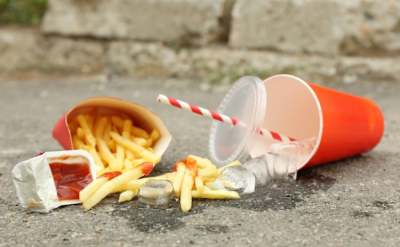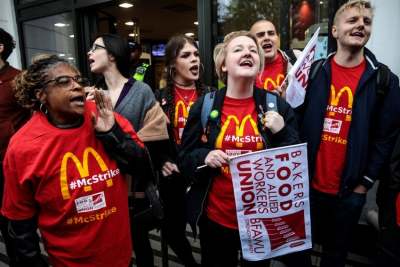This is one of our archived guides and as such does not include a score table. However we have kept the page alive so that you can continue to see the key issues in this sector, in both the buying advice and the in-depth analysis.
If there are particular brands you are interested in they may appear in other food guides, or you can search for the company name in the search box at the top of the web page. This guide will be updated in February 2026.
Fast food chains: I’m not lovin’ it!
The fast food industry has never been exactly synonymous with ethics or sustainability, but recently some of the fast food old timers have been attempting to shake off their poor image, and some newer chains have come onto market selling themselves as a more sustainable fast food option.
We here aim to sort the claims from the reality.
Many of the issues we discussed in our guide to chain restaurants are also pertinent to fast food, such as workers pay and transparency on sourcing.





